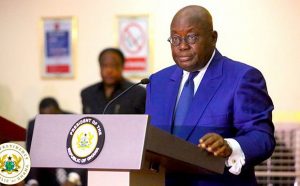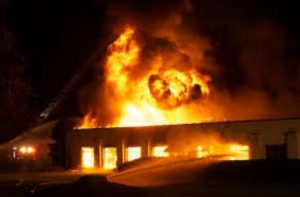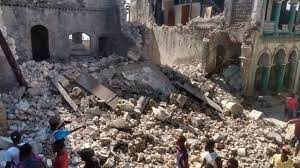The leader of the Nigerian militant group Boko Haram, Abubakar Shekau, has killed himself, rival Islamist militants said in an audio recording.
In audio obtained by news agencies, the Islamic State West Africa Province (Iswap) said Shekau died detonating explosives on himself after a battle between the two groups.
Shekau was reported dead last month and has been reported killed before.
Neither Boko Haram nor the Nigerian government have confirmed his death.
What did the recording say?
In the undated audio recording, a voice thought to be that of Iswap leader Abu Musab al-Barnawi said Shekau “killed himself instantly by detonating an explosive”.
Iswap fighters hunted down the warlord and offered him the chance to repent and join them, al-Barnawi said.
“Shekau preferred to be humiliated in the afterlife than getting humiliated on earth,” he said.
When reports of Shekau’s death in a clash circulated last month, the Nigerian army said it would investigate.
Army spokesman Brig Gen Mohammed Yerima told the BBC at the time the army was looking into what happened, but that it would not issue a statement until it got definitive proof.
One journalist with close links to security agencies said that Shekau died when Iswap attacked Boko Haram positions in the Sambisa forest, north-east Nigeria.
He has been reported dead numerous times before, only to resurface.
The official media outlets of the Islamic State group have also not yet commented on the claims.
What next for Boko Haram?
It’s unclear what Shekau’s death will mean for Boko Haram but it’s unlikely to spell the end of jihadism in West Africa.
For one, the Islamic State West Africa Province has become increasingly prominent in the region and has carried out a number of successful attacks against the Nigerian military.
Analysts say the group may now be wooing Shekau’s former fighters.
This is both good and bad.
It may result in less violent clashes between the two groups. But it would also mean that the so-called Islamic State’s footprint in West Africa receives a massive boost.
Alternatively, Shekau’s fighters could decide to join forces with other extremist groups in the region, or create their own faction.
This would be potentially disastrous for the already embattled north-east of Nigeria as it could lead to more infighting between the different groups, with civilians caught in the middle.







